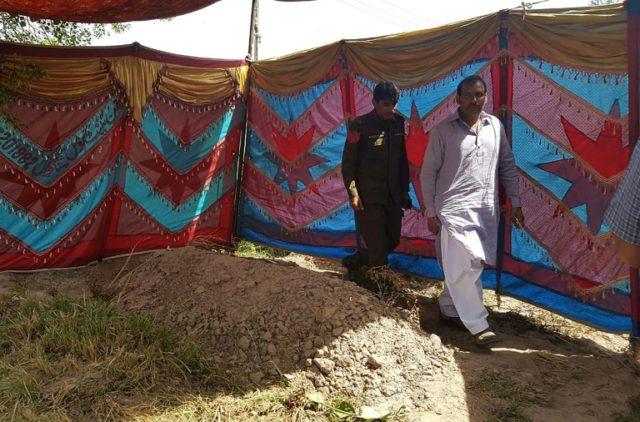Islamabad (AFP) – Pakistani police Wednesday said an Italian woman who died under suspicious circumstances last month was strangled to death, in a case that made headlines in Italy over claims she was murdered in a so-called honour killing.
Police in the eastern city of Gujrat launched an investigation into the death of Sana Cheema — of Pakistani origin and believed to have been in her mid-twenties — after allegations she had been murdered by relatives spread online.
Her body was later exhumed and an autopsy performed, leading to the discovery she had been brutally assaulted.
“It has now been confirmed that she was strangled to death. And according to the report, her neck was also broken,” Irfan Sulehri, a senior police officer in Gujrat told AFP.
A second police officer from Gujrat, Waqar Gujjar, confirmed the findings of the forensics report.
“The accused persons are already in police custody,” Sulehri added.
Cheema’s father, brother and uncle were taken into custody for questioning after the investigation was launched.
According to family members, Cheema died in early April after succumbing to an unspecified illness.
Police said Cheema’s father Ghulam Mustafa brought her back to Pakistan to get married.
According to the woman’s family, this led to a confrontation with a nearby family who spurned the offer of a match.
Because of the rejection Cheema refused to eat, fell ill and died, relatives told police.
However, reports in Italian newspapers alleged Cheema was murdered because she wanted to marry a man in Italy against her family’s wishes.
Hundreds of women in Pakistan are killed by their relatives each year after allegedly bringing shame on their families in the deeply conservative Muslim country.
Under previous legislation the culprits — usually men — could escape punishment if pardoned by members of their own family.
A new law removes the power to forgive culprits in such cases but critics contend some loopholes still exist.

COMMENTS
Please let us know if you're having issues with commenting.